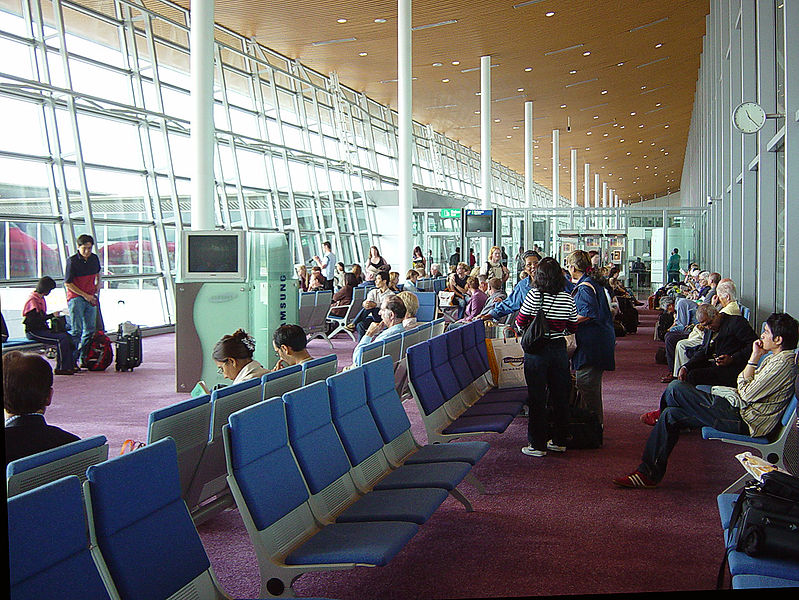Traveling can be an exhilarating experience, but it also comes with its own set of challenges. From language barriers to lost luggage and jet lag, common travel problems can make a trip more stressful than expected. Fortunately, there are plenty of ways to mitigate these issues and have a smooth journey. In this article, we’ll explore the 10 most common travel problems and how to deal with them effectively.
Travel Problems
- Lost Luggage: Losing luggage is a nightmare scenario for any traveler. To avoid this, always keep your essential items like passport, money and phone charger in your carry-on bag. Additionally, make sure to label your luggage with clear identification tags and place a copy of your itinerary inside.
- Flight Delays or Cancellations: Unfortunately, flight delays are inevitable at times. In case of this situation, stay calm and communicate with the airlines staff for updates on the status of the flight. While waiting for any next steps, it’s smart to charge all electronic devices fully.
- Jet Lag: Traveling through different time zones can leave you feeling exhausted from jet lag. To combat this problem, adjust your bedtime routine before traveling so that it aligns closer to the destination time zone to help reduce its impact once you arrive.
- Language Barriers: It can be tough when you don’t speak the local language while traveling abroad but learning basic phrases beforehand such as “hello,” “please” and “thank you” can go a long way in helping bridge communication gaps during travel.
- Getting Sick: Falling ill during travel is never ideal but packing some basic medicines like painkillers and stomach remedies can come in handy during an emergency situation.
Problem 1: Lost Luggage
Lost luggage is every traveler’s nightmare. It can disrupt your entire travel experience and put a damper on your mood. Sometimes, despite taking all the necessary precautions, luggage gets lost or delayed during transit. In such situations, it is important to stay calm and follow the right steps to retrieve it.
The first step is to report the missing luggage immediately at the airport’s baggage claim office. You will be required to fill out a form with details of your flight and personal information along with a description of your lost luggage. Keep a copy of this form for future reference. Airlines have tracking systems in place that allow them to locate misplaced baggage quickly.
While waiting for your lost luggage, pack essentials like clothes, toiletries and medication in your carry-on bag so that you have everything you need until you get reunited with your missing belongings. Be sure to keep copies of all documents related to your lost luggage such as boarding passes and baggage tags, as they may be needed when filing an insurance claim if necessary.
Problem 2: Airline Delays
Airline delays can be a frustrating experience for any traveler. Whether it’s due to weather conditions, mechanical issues, or other unforeseen circumstances, there’s little one can do to avoid them. However, there are some things you can do to make the experience less stressful.
Firstly, always check your flight status before leaving for the airport. This will give you an idea of whether your flight is delayed or on time. Secondly, if you know in advance that your flight is delayed, try to adjust your travel plans accordingly. For example, if you have a connecting flight at another airport and your first flight is delayed by several hours, it might be worth considering alternative options such as rebooking or rescheduling.
Lastly, if you find yourself stranded at the airport due to a delay that’s out of your control, make use of airport amenities such as lounges and restaurants. If possible get some work done while waiting so that even though things are not going according to plan productivity doesn’t suffer too much. Remember that airline delays are unfortunately part and parcel of air travel but with these tips in mind you will hopefully feel more equipped to manage them when they arise.
Problem 3: Language Barriers
Language barriers can be a major challenge for travelers, especially in countries where English is not widely spoken. Communication is key when traveling, whether it’s asking for directions or ordering food at a restaurant. One solution to this problem is to learn a few basic phrases in the local language before your trip. This can help you navigate more efficiently and make your interactions with locals smoother.
Another option is to use translation apps or devices that can help you communicate more effectively. These days, there are many apps available that allow you to translate text and even have conversations with people who speak different languages. Some popular options include Google Translate and iTranslate.
Finally, if you’re really struggling with language barriers, consider hiring a local guide or taking a group tour. This way, you’ll have someone who can help translate for you and provide valuable insights about the local culture and customs. Plus, it’s always nice to have someone else take care of logistics while you focus on enjoying your trip!
Problem 4: Currency Exchange
Currency exchange is a major concern for travelers, especially when visiting foreign countries. The fluctuating exchange rates and hidden fees can make it difficult to get the best value for your money. However, there are several ways to deal with this problem. First, do some research on the exchange rates of the country you’re visiting before you leave home. This will give you an idea of what to expect and help you plan your budget accordingly.
Secondly, avoid exchanging currency at airports or hotels as they often have high commission rates and unfavorable exchange rates. Instead, look for a local bank or currency exchange bureau that offers competitive rates and low fees.
Lastly, consider using a travel credit card that offers no foreign transaction fees and rewards for purchases made abroad. This way, you can save money on fees while earning points or cashback on your spending. By following these tips, you can ensure that you get the most out of your money while traveling abroad without worrying about currency exchange problems.
Problem 5: Unexpected Expenses
Unexpected expenses can throw a wrench in any travel plans. From lost luggage to missed flights, there are countless scenarios that can rack up additional costs. To mitigate these surprises, it’s important to budget for unexpected expenses beforehand and always have some extra cash on hand.
One way to avoid unexpected expenses is by researching your destination ahead of time and anticipating any potential costs. For example, if you’re traveling to a foreign country with a different currency, make sure you know the exchange rate and factor that into your budget. Additionally, look up common scams or tourist traps in the area so you can avoid them.
If you do end up facing unexpected expenses during your travels, don’t panic. Take stock of the situation and evaluate whether it’s a necessary expense or something that could be avoided in the future. If it’s an emergency expense such as medical care or transportation home, prioritize that cost over other activities or purchases during your trip. Remember that unexpected expenses are just part of travel and staying calm and flexible will help you manage them effectively.
Problem 6: Illness Abroad
Illness is one of the most common problems that travelers face when abroad. The unfamiliar environment, different climate, and exposure to new bacteria and viruses can take a toll on your health. It’s essential to take preventive measures before you travel to avoid getting sick while abroad.
One way to prevent illness is by getting vaccinated before you travel. Make sure you have all the necessary vaccinations for the country or region you plan to visit. Also, pack a first aid kit with basic medications such as painkillers, antihistamines, and antidiarrheal drugs in case you get sick.
If you do get sick while traveling, seek medical attention immediately. Don’t try to self-medicate or ignore your symptoms as they could worsen over time. If possible, choose a reputable clinic or hospital that caters specifically to tourists or expats as they are likely better equipped to handle foreign illnesses than local facilities. Additionally, be aware of any insurance coverage that may be available for medical expenses when traveling abroad.
Problem 7: Jet Lag
Jet lag can be a major issue for travelers, especially when moving across multiple time zones. Symptoms include exhaustion, insomnia, irritability, and digestive issues. However, there are several ways to manage jet lag effectively.
One strategy is to adjust your sleep schedule before departing on the trip. Gradually shifting your bedtime and wake-up time by an hour or two each day can help prepare your body for the new time zone. It’s also important to stay hydrated during the flight and avoid alcohol and caffeine, which can disrupt sleep patterns.
Upon arrival at your destination, try to get as much sunlight as possible during the day to signal your body that it’s daytime. Resist the urge to nap until it’s nighttime in the new location. Melatonin supplements may also help regulate sleep cycles if taken according to a doctor’s recommendations.
Overall, managing jet lag requires preparation and patience but can greatly improve the travel experience.
Problem 8: Poor Accommodations
Poor accommodations can be a massive travel problem that could ruin the entire experience. Whether it’s a musty smell or non-existent air conditioning, there are numerous issues that may arise in your hotel room. However, don’t fret because some tips would help you deal with this issue.
Firstly, when you get to your hotel room and it doesn’t meet your expectations, try speaking with the front desk agent immediately. They might be able to switch rooms or fix the issues for you. Also, make sure to read reviews before booking a hotel so that you have an idea of what to expect beforehand.
Secondly, consider alternative lodging options like Airbnb or hostels if traditional hotels aren’t meeting your expectations. These options offer different styles of accommodation at prices that suit every budget level.
In conclusion, having poor accommodations during travel can be incredibly frustrating and stressful. Still, by following some simple steps like reading reviews before booking and considering alternative lodging options like Airbnb and hostels alongside speaking with the front desk agent immediately can help avoid such situations entirely.
Problem 9: Overbooked Flights
Overbooked flights are a common problem that travelers face. Airlines overbook their flights to ensure that they fill every seat on the plane, but this can lead to chaos at the gate when too many passengers show up for their flight. If you find yourself in this situation, it is important to stay calm and remain polite when dealing with airline staff. They are just doing their job and trying to accommodate as many passengers as possible.
One way to avoid being bumped from your flight is to check-in online as soon as possible or arrive at the airport early. However, if you still get bumped from your flight, ask for compensation from the airline. You may be offered vouchers or cash for future travel.
If you have a tight schedule and cannot afford any delays, consider booking a non-stop flight instead of connecting flights or choosing an alternative airline with fewer incidents of overbooking. Overall, it is important to stay informed about your rights as a passenger and know how to handle situations like overbooked flights calmly and efficiently.
Problem 10: Unfamiliar Cultures
One of the most exciting aspects of traveling is experiencing new cultures. However, it can also be one of the biggest challenges. Unfamiliar customs and traditions can be overwhelming, leaving you feeling uncomfortable or even embarrassed. One way to ease into a new culture is to do your research before you arrive. Learn about the local customs and social norms so that you know what is expected of you.
Another helpful tip when navigating unfamiliar cultures is to observe the locals and follow their lead. Pay attention to how they dress, speak, and behave in different settings. Mimicking their behavior can help you blend in more seamlessly and show respect for their way of life.
Lastly, don’t be afraid to ask questions! Locals are often happy to share information about their culture with visitors. Strike up a conversation with a friendly face and express your interest in learning more about their way of life. You might just gain some valuable insights and make a meaningful connection along the way!
Conclusion
while travel can be a thrilling experience, it is not without its challenges. Whether it is lost luggage, flight delays or language barriers, knowing how to deal with common travel problems can make all the difference in ensuring a stress-free trip.
One of the most important things you can do before your trip is to research and plan ahead. Knowing what to expect in terms of weather conditions, local customs and transportation options can help prevent many travel mishaps. Additionally, investing in travel insurance can provide peace of mind and protection against unexpected issues like medical emergencies or canceled flights.
Lastly, remember that flexibility and a positive attitude go a long way when dealing with unexpected issues while traveling. Embrace the adventure and take advantage of opportunities for spontaneity – who knows what amazing experiences may come your way! By preparing ahead of time, staying open-minded and maintaining a sense of humor even during stressful situations, you’ll be able to handle any obstacle that comes your way on your travels.










